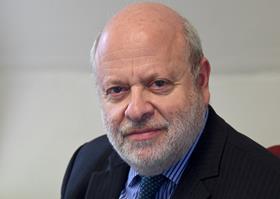The Solicitors Regulation Authority continues to be a reluctant adaptor to the new coronavirus world in which we find ourselves. Its attitude towards the impact on qualifying lawyers is a good place to see this.

Its first announcement, after a slow start in recognising the effect that the health crisis was having on the profession as a whole, was that law schools could not move Legal Practice Course assessments online, despite the risks of delay to qualification. Personally supervised assessments had to continue to ensure integrity.
The Law Society’s Junior Lawyers Division was seriously concerned, and wrote a letter to the SRA, explaining the impact that a delay in the LPC would have, and urging it to consider alternatives, providing a wide range of alternatives for the SRA to consider.
The SRA replied after about a fortnight, and announced a relaxation of current assessment conditions. For core LPC subjects, the SRA will now consider applications for online or remote proctoring of supervised assessments, subject to agreement with each provider. It is not quite the bold and grand gesture which the times require, but it is movement.
I believe it should not have taken the Junior Lawyers Division to push the SRA to be more flexible, since the SRA’s attitude from the outset should have been to try to support law students and the profession as much as possible, without foot-dragging.
The United States provides an example of the kind of bold and grand vision which I think the SRA should adopt in relation to the whole profession. Qualifying solicitors are again here used only as an example of part of the profession, and a useful comparator for the LPC example above.
The position in the US for qualifying lawyers is as dire as in our jurisdiction, with July bar exams already being cancelled in some states. Of course, the US route to qualification is different, without a training period, and with the bar exam as the only necessary step to practise after passing a law degree. But the US provides an example of a can-do attitude.
The American Bar Association (ABA), which is not a regulator, approved a policy at the beginning of April that encourages state regulators to allow 2019 and 2020 graduates of ABA-approved law schools to practise under the supervision of a qualified lawyer if the July bar exam in their jurisdiction is cancelled or postponed due to the pandemic.
This new policy would apply only to first-time bar takers, who would have until the end of 2021 to practise without passing the bar exam. It is a temporary measure, conditional on the applicant actually taking and passing the bar exam by the end of 2021.
Among other restrictions, the ABA urges that regulators include disclosure provisions so that clients, courts and the public are aware of the limited nature of the licence granted to the student. And the law students should register with, and pay appropriate fees to, the regulator concerned.
Some of the background to the move is interesting. For instance, the average 2020 law graduate will bear on graduation a debt load of $142,870. The ABA was concerned that a delay in qualification, and so paid work, would have a serious financial impact on this cohort.
Second, the ABA may not be a regulator, but its policy deliberately follows a handful of state regulators which have already gone down this path, either implementing or in the process of implementing or considering just such a rule for their own qualifying lawyers. So the ABA is promoting best practice.
Third, and this is the part of the background report to the new policy which highlights best the can-do spirit which should be adopted by the professional bodies in the UK, the ABA says:
‘The immediate legal needs of individuals and businesses, from small to large, as a result of this pandemic, are already enormous and will continue to grow. Tens of thousands of graduating law students stand ready to help with those needs, if they are given the regulatory permission to do so. This resolution encourages states to permit these trained law graduates to help serve the public in this crisis.’
This may not be a solution directly applicable to our circumstances. For instance, the Junior Lawyers Division in their letter to the SRA specifically argued against any delay to the LPC for this year’s applicants, because – among other things - trainees would then have to work and take exams at the same time, the exams might be in a different part of the country to their work, and there is no guarantee that the trainees would be given study leave by their employers.
But I think it is important for the SRA to learn from the ABA and show a broad supportive vision in future.
*The Law Society is keeping the coronavirus situation under review and monitoring the advice it receives from the Foreign & Commonwealth Office and Public Health England.































3 Readers' comments